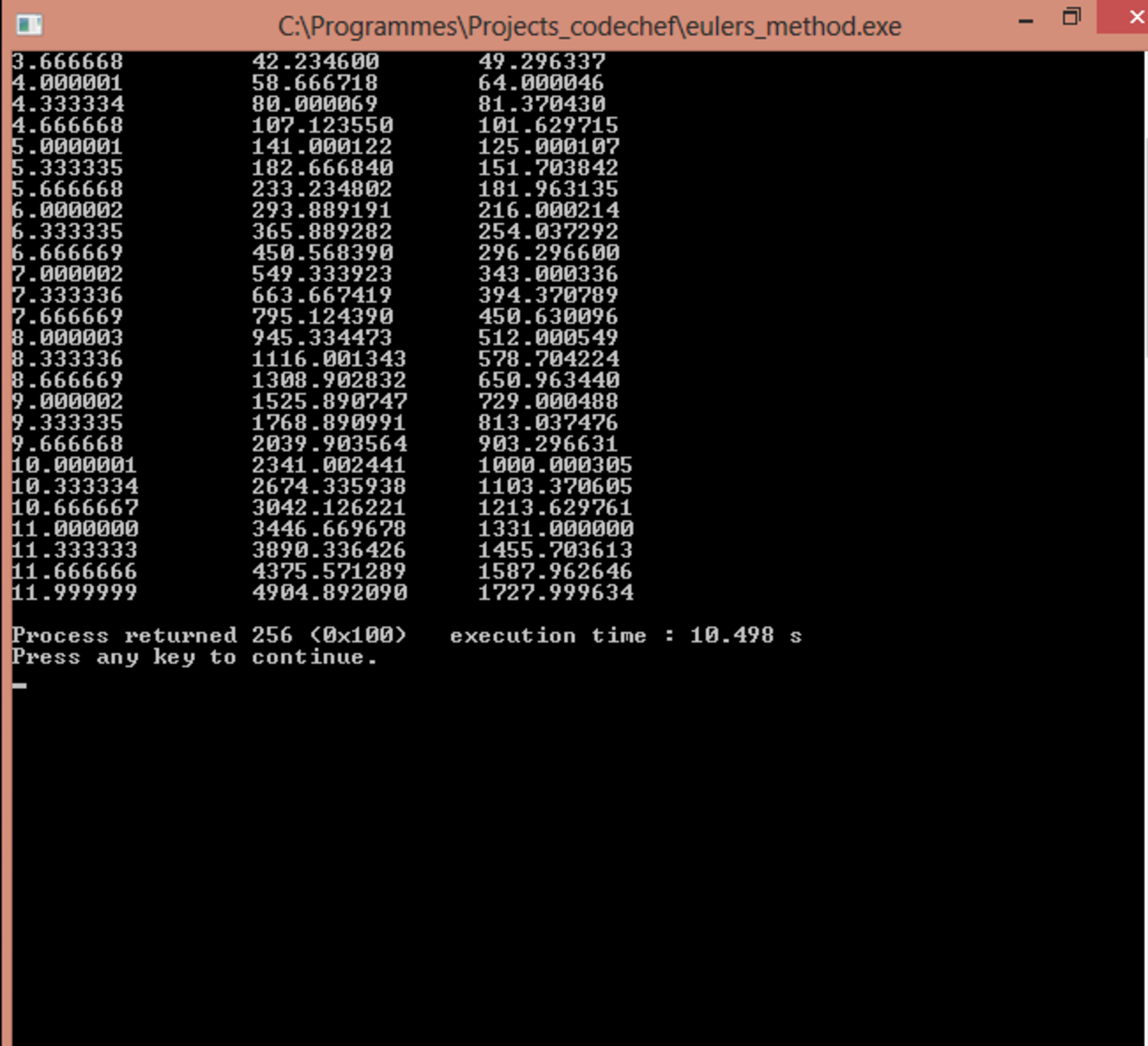Doubt in Eulers method with smaller step size

I have a doubt in applying eulers method with smaller step size. While I got all the problems with step size =1 correct, I am unable to get any in the other category correct. Isnt eulers method this?
?
Im trying probs like dy/dx= x^3 , f(1)=5, step size = 1/3, find f(12)- f(7). I even wrote a program to do this but still im getting the wrong answer. Can someone please help?
No vote yet
1 vote
Easy Math Editor
This discussion board is a place to discuss our Daily Challenges and the math and science related to those challenges. Explanations are more than just a solution — they should explain the steps and thinking strategies that you used to obtain the solution. Comments should further the discussion of math and science.
When posting on Brilliant:
*italics*or_italics_**bold**or__bold__paragraph 1
paragraph 2
[example link](https://brilliant.org)> This is a quote# I indented these lines # 4 spaces, and now they show # up as a code block. print "hello world"\(...\)or\[...\]to ensure proper formatting.2 \times 32^{34}a_{i-1}\frac{2}{3}\sqrt{2}\sum_{i=1}^3\sin \theta\boxed{123}Comments
class euler { public static void main(String args[]) { float i,fn=5,d,step,f7; for(i=1;i<=12;i=i+1/3) { d=iii; step=1/3;
fn=fn+step*d; if(i==7) { f7=fn; }
} System.out.println(fn - f7); } } ye try kr .. P.S: n compiler here :D
Log in to reply
while(x<=limit) { diff=xxx; printf("%f \t %f \t %f \n",x,y,diff); y=y+ (step*diff); x=x+step;
Guess ive used the same thing. Check the screenshot, its from the results of the same code.